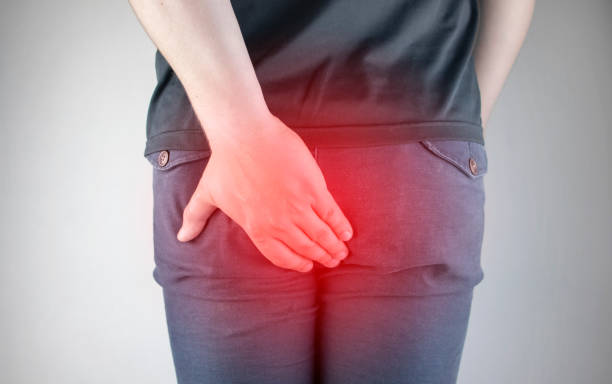
Book An Appointment
Take The First Step Towards A Healthier, Happier You – Book Your Appointment With ishan Clinic Today.
Piles Treatment
Piles, also known as hemorrhoids, can cause discomfort and pain. Treatment options vary depending on the severity of symptoms. For mild cases, lifestyle changes such as a high-fiber diet, adequate fluid intake, and regular exercise can help alleviate symptoms and prevent flare-ups. Over-the-counter medications like creams, ointments, and suppositories may also provide relief from itching, swelling, and discomfort.
In more severe cases, medical intervention may be necessary. Procedures like rubber band ligation, sclerotherapy, or infrared coagulation can help shrink hemorrhoids or stop bleeding. Surgical options such as hemorrhoidectomy may be recommended for persistent or large hemorrhoids that don’t respond to other treatments.
Additionally, maintaining good anal hygiene is crucial to prevent irritation and infection. This includes gentle cleansing after bowel movements and avoiding excessive wiping or the use of harsh soaps.
However, prevention is key to managing piles. Eating a balanced diet rich in fiber, staying hydrated, avoiding straining during bowel movements, and maintaining a healthy weight can all help prevent hemorrhoids from developing or worsening.
It’s important to consult a healthcare professional for proper diagnosis and treatment recommendations tailored to individual needs. Ignoring symptoms or attempting self-treatment without medical guidance can lead to complications and prolonged discomfort. With the right approach, most cases of piles can be effectively managed, allowing individuals to live comfortably and without interference from symptoms.
Types of Piles Treatment:
- Lifestyle changes
- Over-the-counter medications
- Minimally invasive procedures
- Surgical interventions
Lifestyle changesPiles treatment
Lifestyle changes play a crucial role in managing piles. A high-fiber diet with plenty of fruits, vegetables, and whole grains can soften stools and ease bowel movements, reducing strain. Drinking plenty of water helps prevent constipation, which can worsen symptoms. Regular exercise improves bowel function and overall health. Avoiding long periods of sitting or standing can reduce pressure on the rectal area. Additionally, practicing good anal hygiene by gently cleaning after bowel movements and avoiding excessive wiping can prevent irritation. These lifestyle modifications can help alleviate symptoms and reduce the risk of flare-ups in individuals with piles.
Over-the-counter medicationsPiles treatment
Over-the-counter medications are often used to relieve symptoms of piles. Creams, ointments, and suppositories containing ingredients like hydrocortisone or witch hazel can help reduce itching, swelling, and discomfort. Some over-the-counter oral medications, such as stool softeners or fiber supplements, can help alleviate constipation and make bowel movements more comfortable. Pain relievers like ibuprofen or acetaminophen may also be used to manage pain associated with piles. However, it’s important to follow the instructions carefully and consult a healthcare professional if symptoms persist or worsen despite over-the-counter treatment.
Minimally invasive procedures Piles treatment
Minimally invasive procedures are effective options for treating piles when lifestyle changes and medications aren’t sufficient. These procedures include rubber band ligation, where a rubber band is placed around the base of the hemorrhoid to cut off blood flow, causing it to shrink and fall off. Another option is sclerotherapy, where a chemical solution is injected into the hemorrhoid to shrink it. Infrared coagulation uses heat to coagulate the blood vessels feeding the hemorrhoid. These procedures are usually performed on an outpatient basis and offer quick recovery times with minimal discomfort. They can provide relief for persistent or severe piles symptoms.
Surgical interventions Piles treatment
Surgical interventions are considered for severe or recurring piles that don’t respond to other treatments. Hemorrhoidectomy is a surgical procedure to remove hemorrhoids. It involves cutting out the swollen blood vessels in and around the rectum. Another option is stapled hemorrhoidopexy, where a special stapling device is used to remove tissue and close off the blood vessels. These surgeries are usually performed under anesthesia and may require a short hospital stay. While effective, they may have longer recovery times and potential risks. Surgical interventions are typically reserved for cases where other treatments have failed to provide relief.




Ishan Clinic
Effective Diet for Piles Treatment
Discover the best foods for piles treatment to alleviate symptoms and promote healing. Explore dietary recommendations and lifestyle changes to manage hemorrhoids effectively.